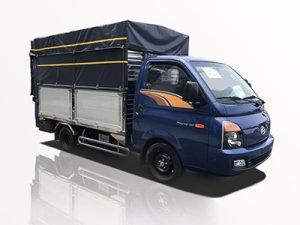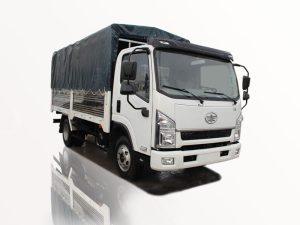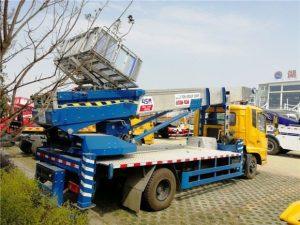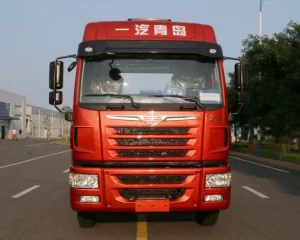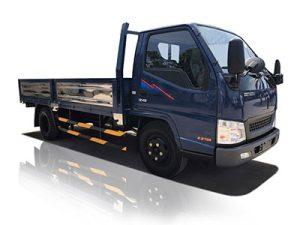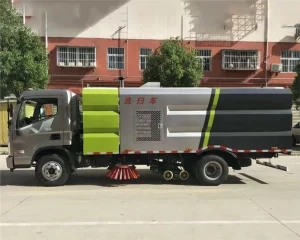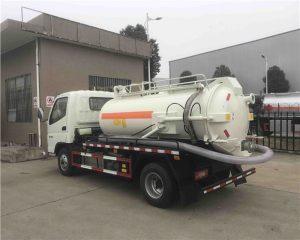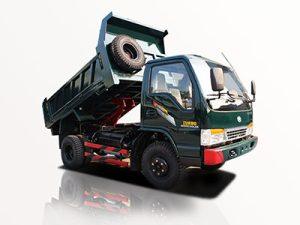Monday to Saturday - 8:00 -17:30
How Many Wheels Do Garbage Trucks Have? A Comprehensive Guide
When it comes to garbage trucks, one might not think much about their design or structure. However, understanding how many wheels garbage trucks have is essential not only for waste management professionals but also for everyday citizens who interact with these vital vehicles in their communities. This article will explore the specifics of garbage truck wheels, their functions, types, and much more.
The Basics of Garbage Trucks
What is a Garbage Truck?
A garbage truck is a vehicle specifically designed for the collection, transportation, and disposal of waste materials. These trucks come in various shapes and sizes, tailored to different types of waste management needs.
Types of Garbage Trucks
Garbage trucks vary based on their mechanics and features. Here are the most common types:
- Rear-Loading Garbage Trucks: These trucks have a compaction mechanism at the rear, where waste is loaded from the back end.
- Front-Loading Garbage Trucks: These trucks feature a lifting mechanism at the front, typically used in commercial waste collection.
- Side-Loading Garbage Trucks: These have a side-mounted mechanism to collect waste, allowing for easy access to bins.
- Roll-Off Garbage Trucks: Used for large waste containers, these trucks have a flatbed that allows them to carry rolled-on containers.
How Many Wheels Do Garbage Trucks Have?
Standard Wheel Count
The typical garbage truck has between 6 to 10 wheels, depending on its size and design. Light-duty garbage trucks generally have:
- 6 wheels (e.g., small garbage trucks used for residential pickups)
While larger commercial garbage trucks can have:
- 10 wheels (e.g., heavy-duty models used for industrial waste)
Wheel Types
Most garbage trucks use standard rubber tires; however, some specialized variants may employ different types for enhanced performance.
| Truck Type | Wheel Count | Typical Use |
|---|---|---|
| Light-Duty Garbage Trucks | 6 | Residential pickups |
| Heavy-Duty Garbage Trucks | 10 | Commercial and industrial waste |
The Importance of Wheel Design
Stability and Load Bearing
Wheels play a critical role in the stability and load-bearing capacity of garbage trucks. Given the heavy loads these trucks carry, a strong wheel design is vital to ensure safety and efficiency during operation.
Durability and Performance
Garbage trucks face a range of terrains and road conditions. Therefore, wheels must be durable and capable of withstanding wear and tear while maintaining traction and maneuverability.
Features of Garbage Truck Wheels
Size and Material
The size and materials used in garbage truck wheels vary based on the truck’s design and purpose. Most garbage trucks use wheels that are larger than those found on standard vehicles, typically ranging from 20 to 24 inches in diameter. Common materials include:
- Steel: Offers strength and durability.
- Aluminum: Lighter, improving fuel efficiency.
Tread Patterns
The tread pattern on garbage truck wheels is designed for optimal traction, which is essential for handling different surfaces—from urban roads to uneven terrains during service collections.
Operational Considerations
Turning Radius
The number of wheels and their size influence the turning radius of a garbage truck. Trucks with more wheels, specifically articulated trucks, generally require a wider turning radius, which can affect their maneuverability in tight spaces.
Maintenance of Wheels
Regular maintenance of garbage truck wheels is crucial. Here are some tips:
- Regularly check tire pressure.
- Inspect tread for wear and tear.
- Ensure proper alignment to maximize efficiency.
Comparative Analysis of Garbage Truck Wheels
Comparison with Other Commercial Vehicles
Compared to other commercial vehicles, garbage trucks often have a higher wheel count to manage their heavier loads. For example:
- Delivery trucks typically have 6 wheels.
- Dump trucks can have anywhere from 10 to 18 wheels based on size.
This difference in wheel count reflects the specific functionalities required by different vehicles within commercial use.
Environmental Impact
The number of wheels can also influence the environmental footprint of garbage trucks, particularly regarding their fuel efficiency and emissions. Trucks designed for lower resistance typically consume less fuel, thus producing fewer emissions.
Cost of Garbage Truck Wheels
Initial Investment
Investing in a garbage truck entails understanding the costs associated with its wheels. Prices for individual wheels can range significantly depending on size, material, and brand. For example:
- Standard steel wheels can cost between $150 to $300 per wheel.
- Aluminum options may range from $200 to $400 per wheel.
Long-term Costs
Long-term costs related to garbage truck wheels include maintenance, tire replacements, and fuel consumption. It’s important to plan for these expenses in the total operating budget.
Technological Advancements in Wheel Design
Innovative Materials
New technologies are being applied to garbage truck wheels, including lighter materials that enhance fuel efficiency without compromising strength. Innovations like run-flat tires are also gaining traction, enabling trucks to continue operation even when a tire is compromised.
Smart Tire Technologies
Smart tire technologies are emerging, allowing for real-time monitoring of tire pressure and temperature, reducing the risk of tire failure and improving overall safety and efficiency.
FAQs About Garbage Truck Wheels
How Many Wheels Do Most Garbage Trucks Have?
Most garbage trucks have between 6 to 10 wheels, depending on the size and type of the truck.
Are All Garbage Trucks the Same Size and Wheel Count?
No, garbage trucks vary significantly in size and wheel count based on their intended use, such as residential versus commercial waste collection.
What Types of Tires Do Garbage Trucks Use?
Garbage trucks typically use heavy-duty rubber tires designed for durability and traction, with options available in steel or aluminum rim construction.
How Often Should Garbage Truck Wheels Be Inspected?
Garbage truck wheels should be inspected regularly, ideally before and after each route, to ensure they are in good condition and safe for operation.
Do Garbage Trucks Use Specialty Tires?
Some specialty garbage trucks use specific tires equipped for particular terrains, such as off-road tires for rural routes.
Can Poorly Maintained Wheels Affect Garbage Truck Performance?
Yes, poorly maintained wheels can lead to reduced efficiency, increased fuel consumption, and potential safety hazards.


